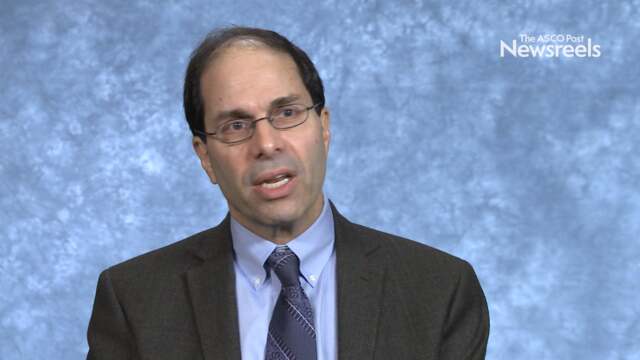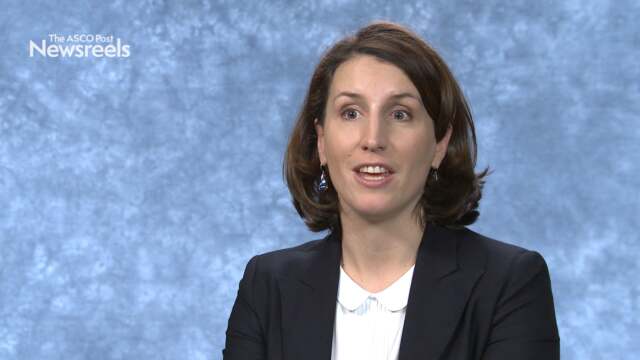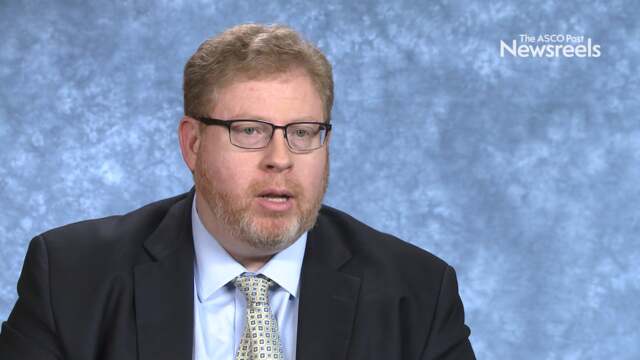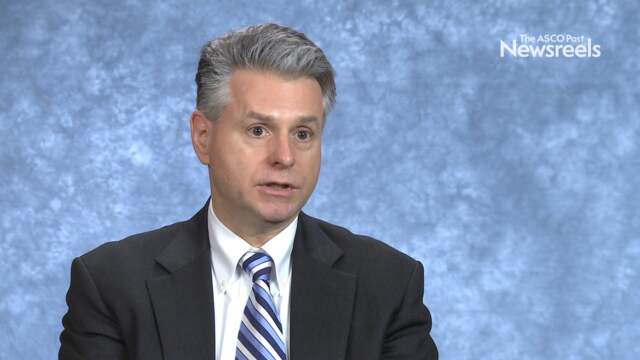Fatima Karzai, MD, on Prostate Cancer: Treatment Study Results
2018 Genitourinary Cancers Symposium
Fatima Karzai, MD, of the National Institutes of Health, discusses phase II findings on olaparib and durvalumab in metastatic castration-resistant prostate cancer in an unselected population (Abstract 163).
Eric J. Small, MD, of the University of California, San Francisco, discusses phase III findings on apalutamide vs placebo in patients with nonmetastatic castration-resistant prostate cancer (Abstract 161).
Laurence Albiges, MD, PhD, of the Gustave Roussy Cancer Centre, discusses study findings on the safety and efficacy of nivolumab in metastatic renal cell carcinoma (Abstract 577).
Jonathan E. Rosenberg, MD, of Memorial Sloan Kettering Cancer Center, discusses longer-term efficacy and safety findings on nivolumab monotherapy in metastatic urothelial carcinoma (Abstract 414).
John J. Coen, MD, of 21st Century Oncology, discusses phase II study findings on selective bladder preservation with twice-daily radiation plus fluorouracil/cisplatin or daily radiation plus gemcitabine for patients with muscle-invasive bladder cancer (Abstract 408).
Daniel J. George, MD, of Duke University Medical Center, discusses study findings on cabozantinib vs sunitinib for previously untreated patients with advanced renal cell carcinoma of intermediate or poor risk, in a subgroup analysis of progression-free survival and objective response rates (Abstract 582).





